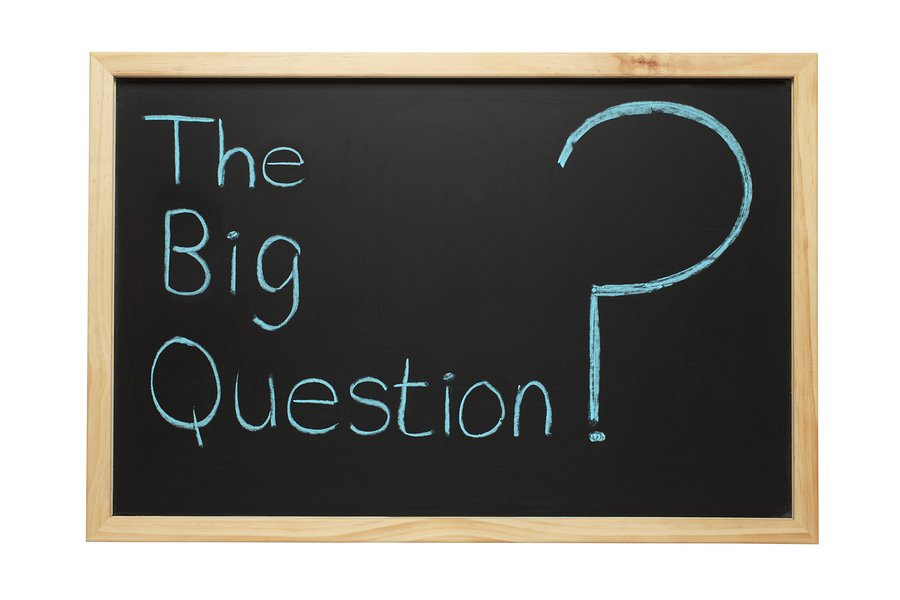Authors are like small businesses. They have a finance department, a marketing department and an editorial wing. Then there’s the travel, human resources, IT and facilities management departments, all managed by one person, the author.
While writing quality and author platforms are discussed at every writer’s conference, those aren’t the only factors contributing to the success or less-than-success of a new book.
While it may appear author platform is everything, it isn’t. In fact, the author’s platform can only take them so far. And at the risk of being called a literary heretic, the impact of good writing is limited as well. Successful books are not “only about the writing.”
Books are turned down by agents and publishers every day for lack of platform and for quality of writing, but many books are rejected by their inability to answer one simple question.
“Why is this needed?” (or the more commonly used, “So what?”)
The answer to this question is the literal pass/fail test for every book. And part of a passing grade for a book is not difficult to understand.
And it’s not just in publishing where identifying the benefit to the user is important. If you pay attention to most advertising, you will see how professional marketers emphasize user benefit to advance their cause. A product isn’t “low cost,” it “saves you money.” The “low cost” is a feature, but “saves you money” is the benefit.
Every successful business is customer-benefit focused, first and foremost.
Often, authors have a hard time identifying the true reader-benefit of their book and need an outside perspective to find it. And if they still can’t locate an easily-defined benefit, then it might indicate a larger problem…there might not be one.
It isn’t a good thing if there’s no easily identified reason for a reader to buy a book.
In fact, as an aside, difficulty developing a platform might indicate followers or readers might not see a benefit to following.
How this applies to various types of books are as follows:
Personal life stories can devolve into books which are “all about the author,” with nothing for the reader’s benefit, unless you are uber-famous and then we want to know the kind of bicycle you rode when you were nine years old.
Information books or opinion books can also be cold, disconnected tomes of detail from the author’s education and experience.
Literary musings can end up being an author simply “showing off” their immense writing prowess.
Even Christian-themed books can elicit a “So what?” response from reviewers if there is no clear application to the reader.
Why do these types of projects get the thumbs-down from agents and publishers?
Because it reveals the author has a greater need to be known, heard and understood, than benefit the reader. Successful books of all types give something of value to the reader. In general, one or more of the following:
Inspiration
Illumination
Enflame the imagination
Hope
Encouragement
Insight into something important to the reader
Promise of something good
Every type of book must have one or more of these benefits for the reader and if there isn’t, or the benefit is confusing or obtuse, it won’t be a successful.
Keep working on your platform and your writing quality, but first, think of the platform followers and your eventual book readers. If you don’t give them a compelling reason to follow you or something which will improve their life, you might need to go back to the drawing board or ask someone to help you identify something.
Books are meant to be read and for this to happen, you need a reader. Think of them throughout the writing process, giving them something of value in exchange for their money and time.



 Of Making Many Books There Is No End
Of Making Many Books There Is No End

Thank you. Thank you for getting us out of the forest and into the trees.
‘Find a need and fill it’ is great, but even better is identifying a yearning and showing that it can be met.
C.S. Lewis did this brilliantly with the Narnia series; the books were born into a world that had been twisted and torn by the Second World War, and they pointed the way to Hope, a story that really DID have a happily Ever After which meant exactly that.
So too with Richard Bach, who in ‘Jonathan Livingston Seagull’ and ‘Illusions’ showed us that our caged minds and hearts occupy a prison in which the clanging doors are locked from within, that we have the keys, and that being our own jailers is a choice.
Andrew, you always inspire me. Thank you for these examples/clarifications to enhance Dan’s post for the rest of us.
On target advice!
This is a worthy reference post. I’ll be pointing others to this honest directive that will make a meaningful difference in how we write our stories and proposals.
Teach on.
Dan, thank you for the list of benefits. I’ve always had a hard time with nailing those down.
Inspiration, Illumination, Enflame the imagination, Hope, Encouragement, Insight into something important to the reader, Promise of something good
These are going onto my reminder board by my computer.
Thank you. This can’t be emphasized enough! It’s so easy to get focused on those other goals and focus on the writing or the writer, completely forgetting that the reader is the reason for all of it. This applies to so much more than writing. Thanks for the needed reminder.
Yes! This is so true. As writers, we are also suppose to be readers and should be privy to the thoughts you presented, but writers read with a different mindset than a pure reader. Another layer of analysis goes on in the writer/reader’s mind so more focus is given to structure, word choice, and such details. It’s great to see your list of what should be the main point in the communication . . . take away value for those who trade money for stories. The more universal the story, the more value to everyone working to get the story from writer to readers. Thank you for your helpful list.
Dan, it’s my goal to write a “good story, well told.”
Hi Dan and all,
Good post, and I was reading about this just this morining. It’s not about us, it eventually must be about what resonates with the reader. As we talk, we don’t become flowery or overly literatry. We say boom, this is what happened. Like we would around the water cooler telling a story in our words.
We get in the way when we put it on paper, sounding ridiculously all about ourselves.
The book is called, ‘It was the Best of Sentences, it was the Worst of Sentences.’ It is a secular book but full of great pearls we can pocket and walk away with.
Good article Steve. As I complete my current novel, Revealing Love, I ask myself if it reveals at least one or two of those things you listed. Did I give my readers something of value? I believe I did. It’s always helpful to look at our work from another professional writer’s perspective and double check those things. Thank you.
This is great help. Thank you.